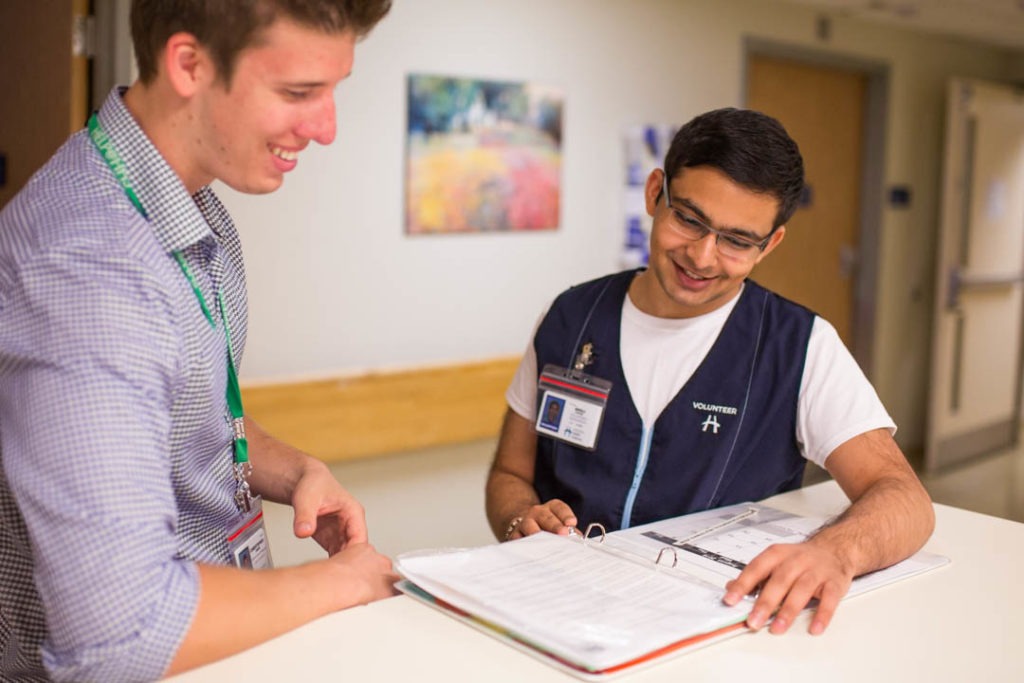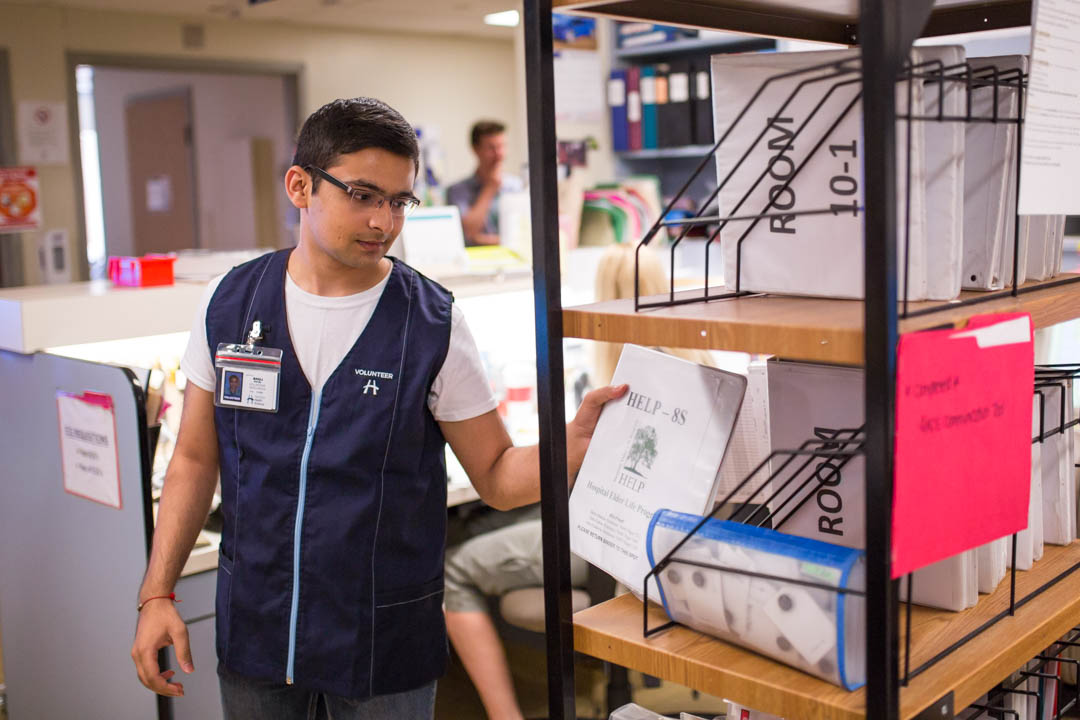
Helping volunteers ‘HELP’ patients
Anuj Patel is a busy student. He’s in fourth year at McMaster University studying Health Sciences. But between the demands of classes, homework and extracurricular activities, he makes time to volunteer with the Hospital Elder Life Program (HELP) at Hamilton General Hospital (HGH).
What is HELP?
HELP runs at both HGH and Juravinski Hospital and Cancer Centre. Hamilton Health Sciences was the first hospital in Canada to adopt the internationally acclaimed program and trains other local sites to help them implement it.
The program relies on volunteers to assist in preventing delirium in hospitalized seniors, which can be triggered by a number of factors including serious illness or recent surgery. Delirium affects a person’s cognitive functioning and can sometimes be misinterpreted as dementia. It can make patients confused and unaware of their surroundings. By spending time with patients and helping them to eat, go for shorts walks, or read magazines, volunteers can reduce the stress that hospitalization causes and prevent delirium. Christopher Gabor, an elder life specialist with HELP says that one of the major delirium prevention strategies volunteers focus on is cognitive stimulation.
“When patients are feeling sensitive or sad,” says Patel, “and you’re able to put a smile on their face by sitting with them or reading to them, it’s really rewarding.”
“That encompasses many interventions including addressing hearing and vision impairments, orienting the patient to time, date and location, reminiscing with the patient, and using therapeutic activities, like games and puzzles,” says Gabor.
HELP has been shown to reduce unplanned readmissions to the hospital, improve the patient and family experience and maximize a patient’s independence on discharge.
Volunteers are vital
Without volunteers, this highly effective program wouldn’t be possible. HELP volunteers like Patel commit to working one shift every week. Each Sunday evening, he comes to HGH to visit patients in the program. He’s dedicated to his role because he sees the positive effects of his visits first-hand.
“When patients are feeling sensitive or sad,” says Patel, “and you’re able to put a smile on their face by sitting with them or reading to them, it’s really rewarding.”
“The HELP program offers such an impactful, rewarding and unique experience, which is why I believe we have such dedicated and committed volunteers.”
HELP was the recipient of this year’s Hamilton Health Sciences Volunteer Resources Partnership Award, which recognizes programs that engage volunteers in a meaningful way. HELP has been very successful at retaining skilled and passionate volunteers that evolve in their roles with the program. Patel, for example, has been volunteering with HELP for three years, and last year was trained as a team leader.
HELP’s volunteer workforce is diverse and includes everyone from retirees to students who contribute to HELP as part of an academic placement. Gabor says that a number of students continue to give their time to HELP even after their mandatory placement ends, because they build a connection with the program.
“The HELP program offers such an impactful, rewarding and unique experience, which is why I believe we have such dedicated and committed volunteers,” he says. “Since volunteers visit patients on a weekly basis and interact with them one on one, they naturally form lasting relationships and see the impact they are having on the patients’ lives directly.”

Finding value in giving back
Staff members like Gabor provide ongoing training to volunteers beyond the day-long orientation they each attend when they begin volunteering. They host information sessions on special topics throughout the year and provide handouts and quizzes to help volunteers brush up on their training.
“They are really supportive,” says Patel. “If you have any questions, they always give a quick response.”
Patel will be finishing his undergraduate degree this year and hopes to enrol in medical school in the fall. He anticipates his life will become much busier with academic demands, but he hopes he will be able to continue with HELP. He says that if he has any time to spare, HELP will be at the top of his list, because it makes him feel like he’s truly making a difference.
What have other volunteers said about HELP?
Although HELP has specific aims at reducing confusion in hospital by keeping patients’ minds and bodies as active as possible, the program is so much more than that. I have made many incredible friends, have learned invaluable lessons when taking care of the elderly, and have come to know the Hamilton General Hospital as my second home. My positions as a volunteer and trainer with this program have also inspired me to pursue a career in the healthcare field. It has been an absolute pleasure being able to volunteer with HELP and I look forward to many new and exciting experiences.”
– Alana Camporese, HGH HELP volunteer
– Kritika Seth, JH HELP volunteer
